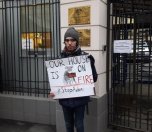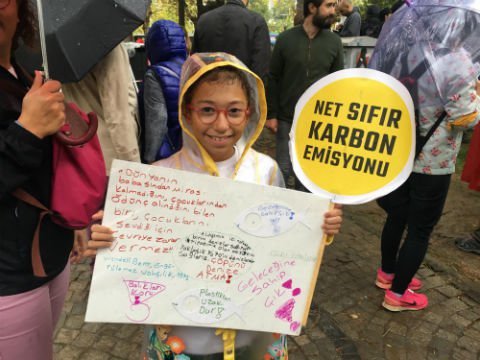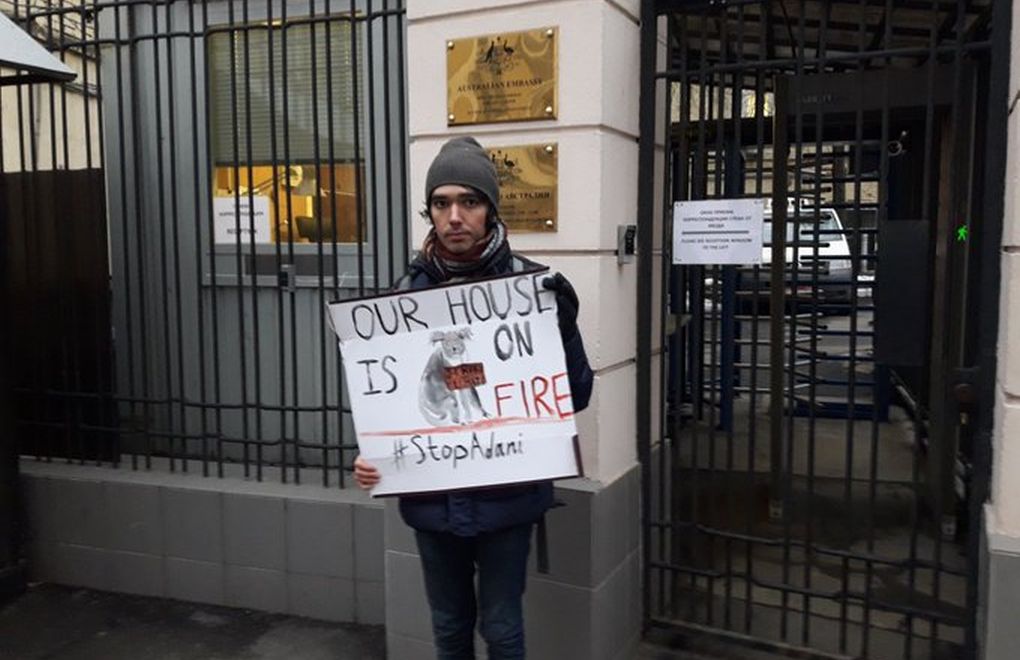Climate Activist Makichyan: 'Activism Works in Russia Because We Have the Truth Behind Us'

Click to read the article in Turkish
Arshak Makichyan, a climate activist from Russia says it was a "very difficult decision" to begin climate strikes.
Responding bianet's questions via email, Makichyan says that their strikes have been influential on many people: "There are millions of people behind me. So, yes. Activism works in Russia."
How did you decide to begin school strikes for climate?
It was a difficult decision, because I've read about Greta and started to read about climate "change" in October, but began to strike in March. You can live your whole life staying away from society, but at some point, I realized that I am still a part of this society. It was a way out of a state of hopelessness.
What was the first reaction you got when you first told your family and friends about the strikes?
My mother has known about my strikes from my social media and she was afraid for me. My father heard after the sixth week from some relatives, who have read an article about my strikes. Then there was an unpleasant conversation.
My friends responded mostly with understanding, but without much support.
How do you plan to go on with your strikes?
A month ago I've graduated from the Moscow conservatory. After September I will need to find a job, but activism is more important for me.
What would you say about the effects of the climate crisis on the soil of Russia?
Irkutsk region is flooding and burning. Whole Siberia is burning. It's a climate and ecological emergency.
What drove you to climate striking in such a difficult country?
Everything. It was a very difficult decision. Perhaps, love to something bigger than me.
How many students/colleagues join you for climate strikes each week?
It depends on whether there is an approved mass strike or not. Many are afraid to strike one by one.
We heard that you were arrested last week. Why do you think you were arrested and how do you feel about it?
The emotional feeling was like if you were run over by a tractor.
It wasn't about the climate strike, there were 1,300 arrested people in Moscow (due to illegal non-admission of any independent candidates to the elections). For me, it was about justice because all these opposition politicians are also silent about the climate crisis.
But I think, without justice, there can't be climate justice either.
Do you think your climate strikes are influential in shaping public opinion of your country on climate crisis?
I think everything matters. My strikes have influenced many people in Russia because behind me there are millions of people and behind us is the truth.
So, yes. Activism works in Russia.
If you had a chance to talk face-to-face with President Putin, what would you tell him in one sentence?
I do not like it, but most likely there are words that could help, but I do not know them yet.
Last of all, what kind of reactions do you get in general?
Many people are supporting me, many people are not. But I care more about what my friends think and whether
I'm doing the right things. I'm trying to consider reasonable criticism, and I try not to pay attention to nonsense. (DÇ/VK)






